He was somebody who became an unlikely TV personality after working on some “wee jobbies” in the garden with his Beeechgrove colleagues.
And, over the course of more than 40 years, Jim McColl, who has died at the age of 89,, dispensed pearls of wisdom, dry-as-Nevada humour and Doric drolleries with colleagues including George Barron and Carole Baxter, at their base in Aberdeen.
Nobody was expecting much at the outset and yet, as he told his myriad viewers: “Every day’s a school day, but everybody can become a gardener.”
It was a message which millions took to heart and it transformed Jim’s life.
Born in Kilmarnock in 1936, he trained at the West of Scotland College, near Ayr, and subsequently worked there, constantly refining his passion for horticulture.
A job in broadcasting was far from his mind, but his maiden television appearance was on Tomorrow’s World while he was involved on a project for Glen Garioch Distillery in Aberdeenshire where he talked about about heating greenhouses for tomatoes.
He had a pawky sense of humour
It wasn’t an immediate path to fame, but the BBC was sufficiently impressed that when the idea of launching a regular gardening show was suggested, Jim was in the frame.
And much of the success of the venture, which was first screened in April 1978, was down to the chemistry and mutual respect between these two couthy customers.
He later recalled: “At the beginning, we were given a blank canvas. There was nothing set in stone. Beechgrove was going to be out there, in the back garden.
“And the rest is history.
‘Talking about something we loved’
“In the early days, one of the funny things was hearing people ask: ‘What makes you think that you know all this and can present it as if you are doing the right thing?’
“My answer to that was that George Barron was standing next to me and he had 60 years’ experience and I’ve got 40 years’ experience in horticulture.
“That is 100 years between the two of us. So if we canna talk for three minutes about how to grow tatties, then it’s a pretty poor do!”
Beechgrove, which is still running more than 45 years later, was fuelled by the expertise of Jim who began writing a popular gardening column for the Press and Journal.
It combined earthy commonsense with plenty of anecdotes from his far-travelled career, including one famous appearance on a radio phone-in programme.
It really was a potting shed
He said: “Before I got involved with Beechgrove, I was on a show when a chap from Perth rang in and asked for advice about growing a plant called Northern Lights.
“The others [on the panel] thought it was a type of cabbage, but I knew he meant a type of cannabis plant because, previously, I had grown cannibis sativa in a foliage border in the Reading University teaching garden in Shinfield in 1960.
“I gave the caller plenty of advice on how to grow the plant – but then, just a few days later, the police got in touch, wanting to know the caller’s details.”
Jim was a consummate professional, steeped in knowledge of his subject. He was made an MBE in 1996 and was recognised by the Royal Horticultural Society who awarded him the prestigious Victoria Medal of Honour in 2020.
In 2016, the Royal Television Society Scotland Award was presented to Jim and Tern TV to celebrate 1,000 episodes of Beechgrove; a series which even its original producers thought might last “a few weeks or months” when it arrived on the airwaves.
He relished these baubles and dedicated them to the whole team in Aberdeen.
But his passion was for teaching everybody how to derive joy, grow their own vegetables and flowers, and improve their mental health from their garden.
As he said: “I’ve always known that gardening is brilliant to get into, it is social, it can be taken to any level and it can be started at any time in your life.
It has so many benefits
“You can also do it anywhere and while someone 15 floors up in a flat might just be limited to boxes on the windowsill, that is still gardening.
“The thing about gardening that is so great is that it is basic and anyone can do it.”
In recent years, Jim suffered from neuropathy – a condition which affected his ability to grasp items properly – and while he didn’t make a fuss, he described it as “a scunner” which left him reliant on colleagues to do a lot of heavy lifting.
He left Beechgrove in 2019 and penned his final P&J column two years ago this month.
And it contained a message which he spoke warmly about in our last conversation.
Nature is playing a lot of tricks
He wrote: “Our biggest challenge in the coming years will be climate change with Mother Nature playing all sorts of tricks.
“I wish you all the best.”
Jim regarded what he did as an absorbing pastime. Even during the Covid pandemic, he helped the men’s shed movement and encouraged people to shrug off lockdown blues by picking up a trowel or a spade and making magic happen.
He said: “In my case, gardening is a profession which started off in 1954 with a year’s practical before I went to college. It has provided endless hours of joy and pleasure.
He was a gem of a man
“And, no matter how much you have done on the lawn, in the greenhouse or amid the hanging baskets, there will always be other wee jobbies to deal with.”
He was a lovely man. And he will be much missed by everybody who met him or watched him put his green fingers to good use in that famous Aberdeen plot.
Jim’s lasting friendship with Robbie
In our final conversation, Jim paid tribute to Robbie Shepherd, with whom he had been good friends for nearly 50 years.
He recalled: “There were two subjects which brought us together – gardening and Scottish music! I returned to Scotland in the early 1970s after 20 years working south of the border to join the Scottish Agricultural College, based mainly at Craibstone.
“As a consequence, I was occasionally invited to contribute on Radio Scotland. As a result, from time to time, I took part in the Robbie Shepherd programme.
“I soon learned that the ‘wee mannie’ was a keen gardener, his favourite plants being sweet peas. As it so happens, running parallel with that, I am a keen amateur musician, majoring on Scottish music.
“So it was maybe no wonder that we ‘clicked’, became good friends and met up socially, and we always had plenty to talk about.”
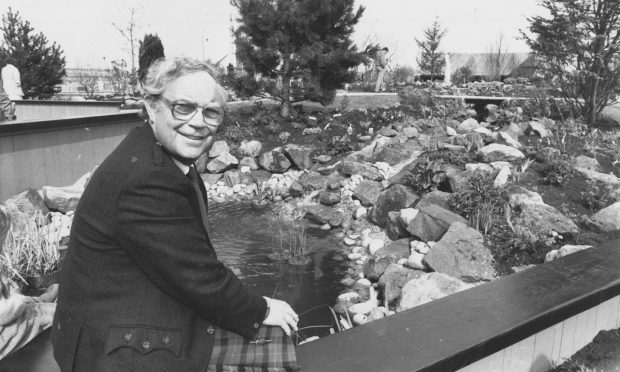
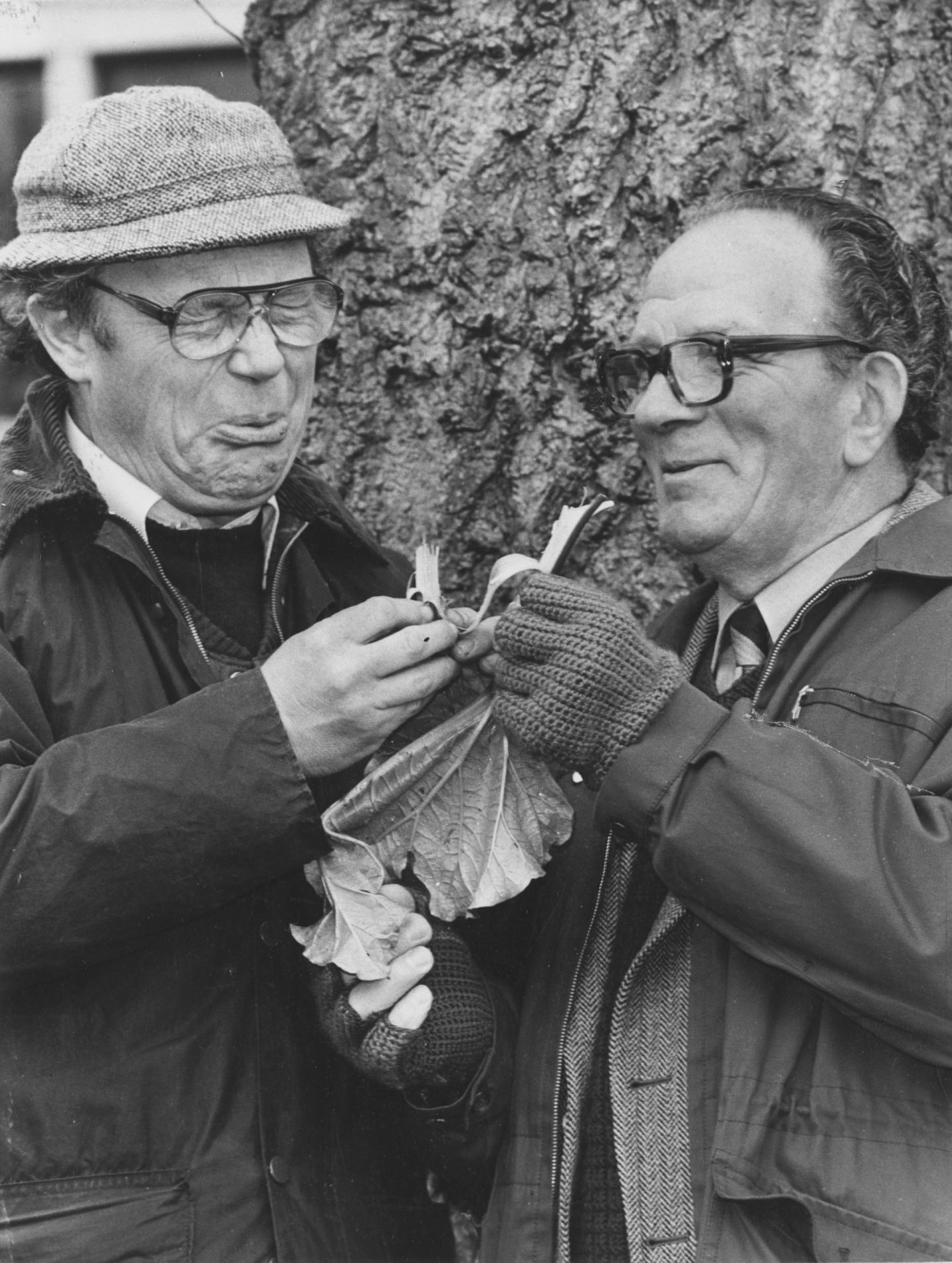
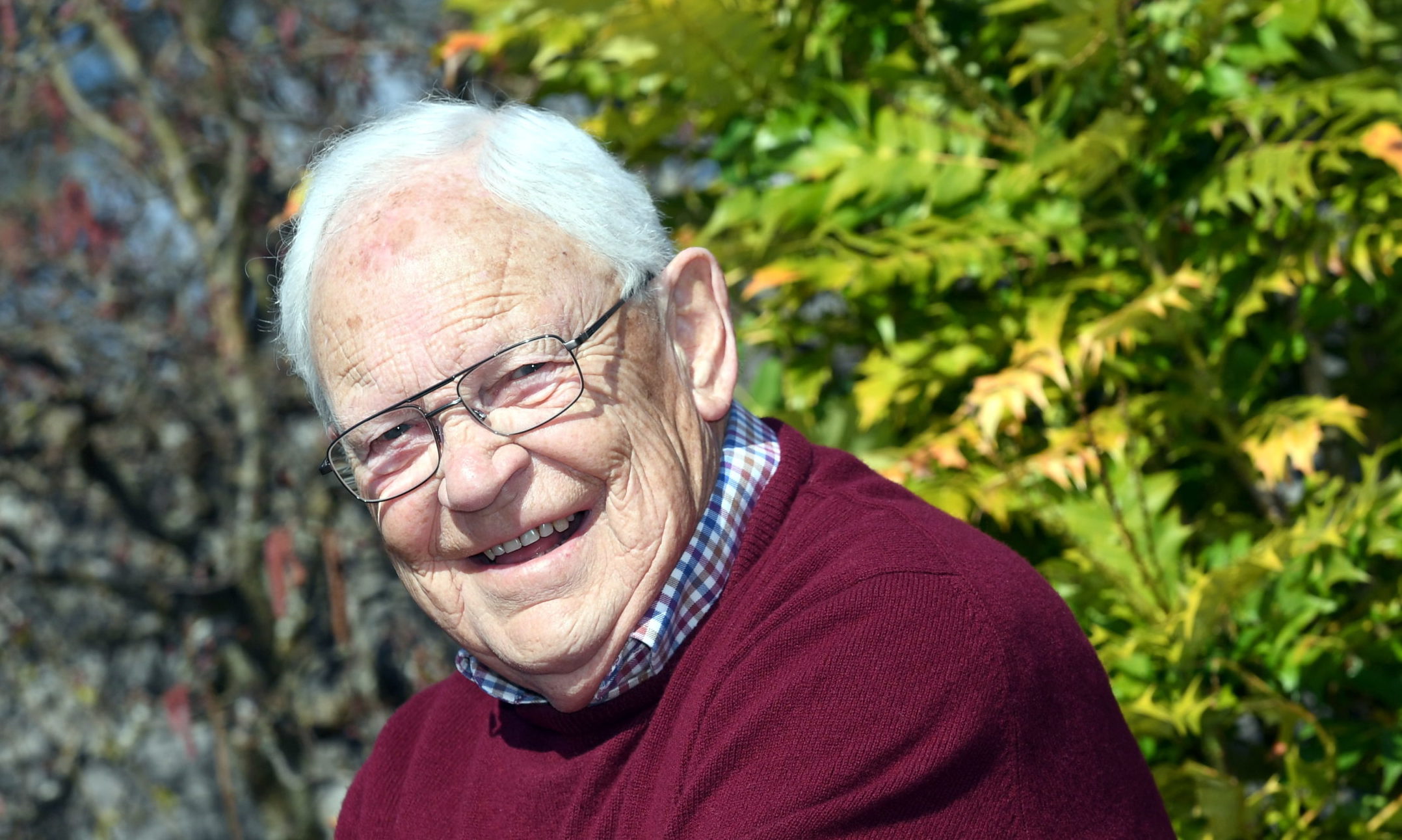
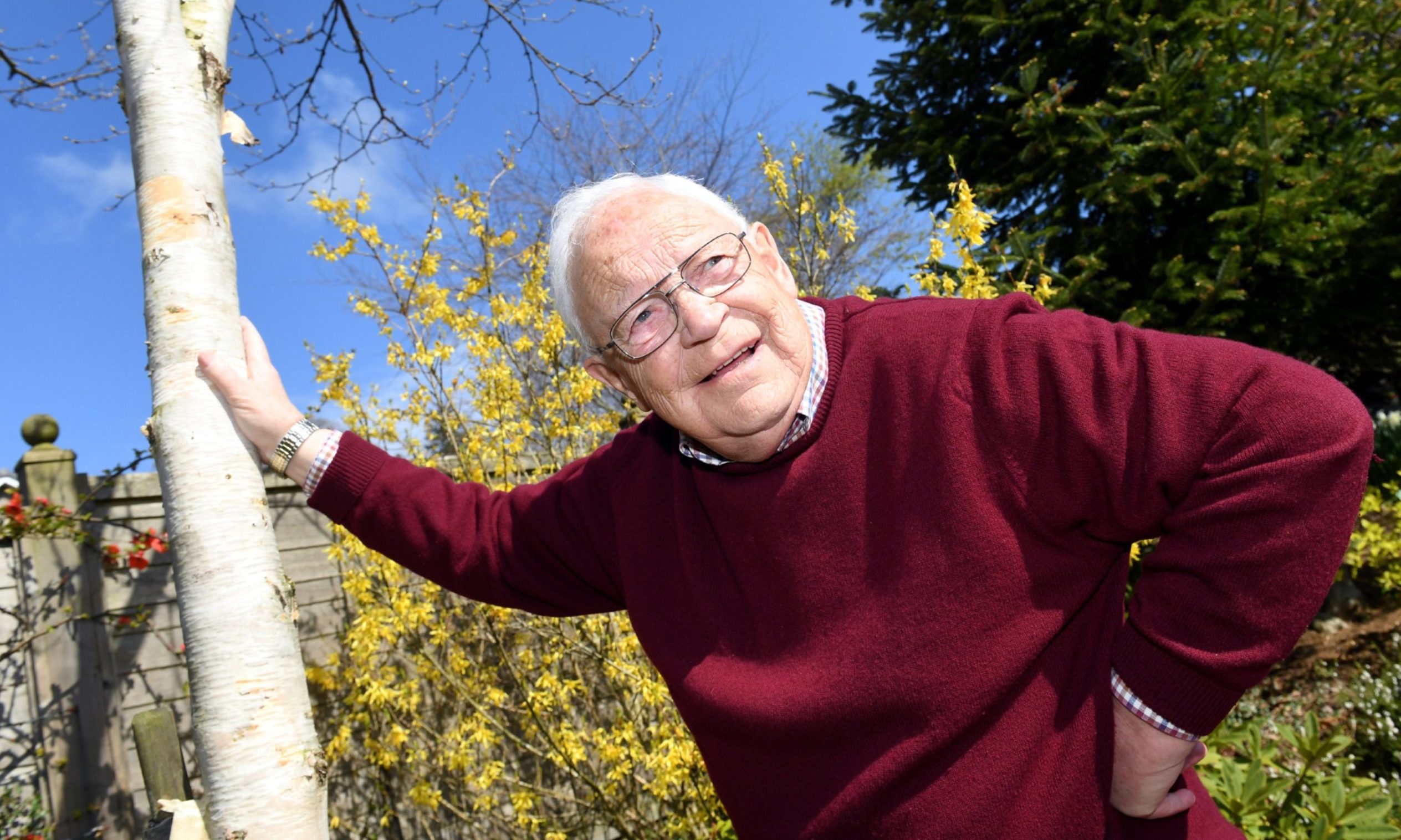
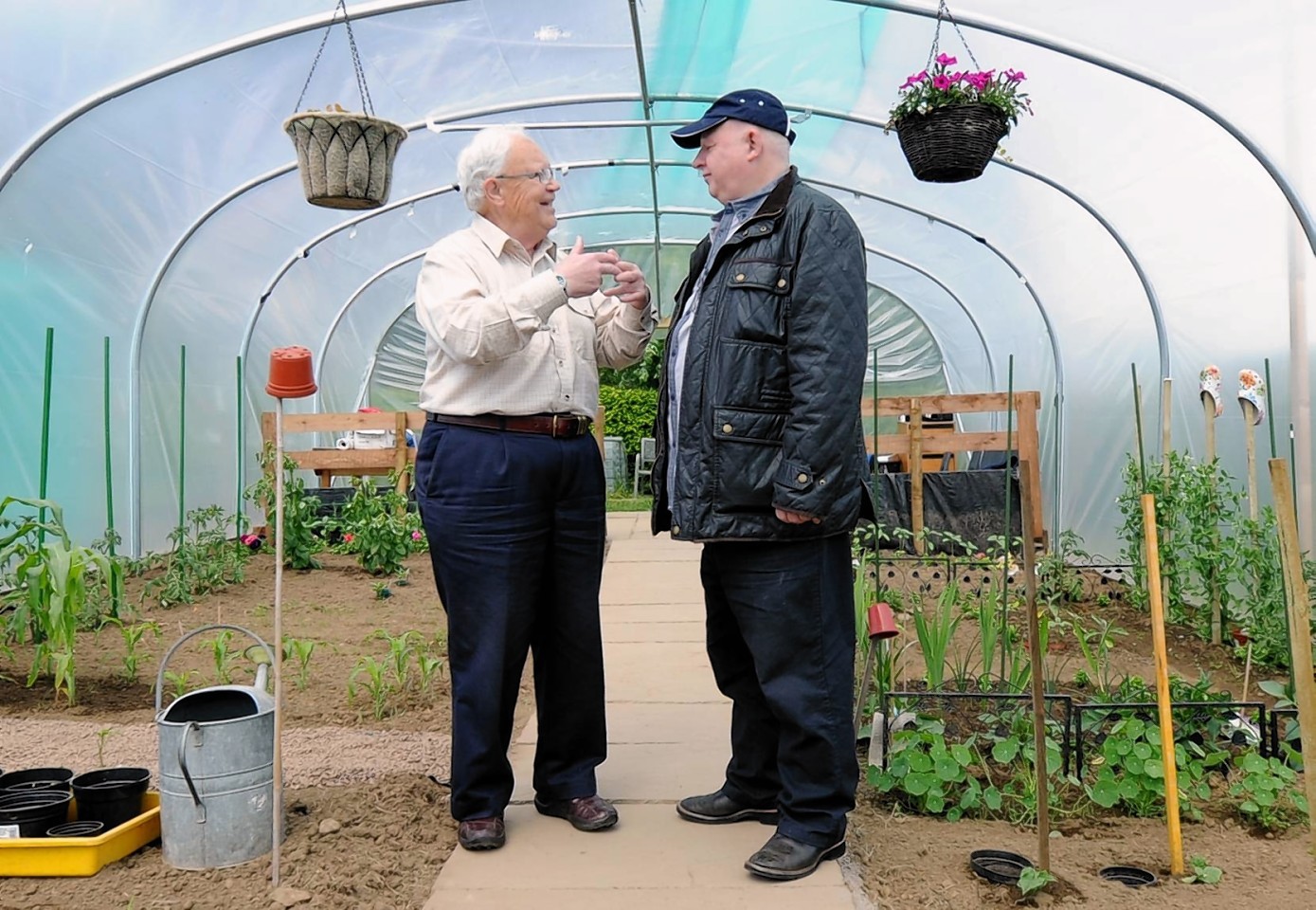
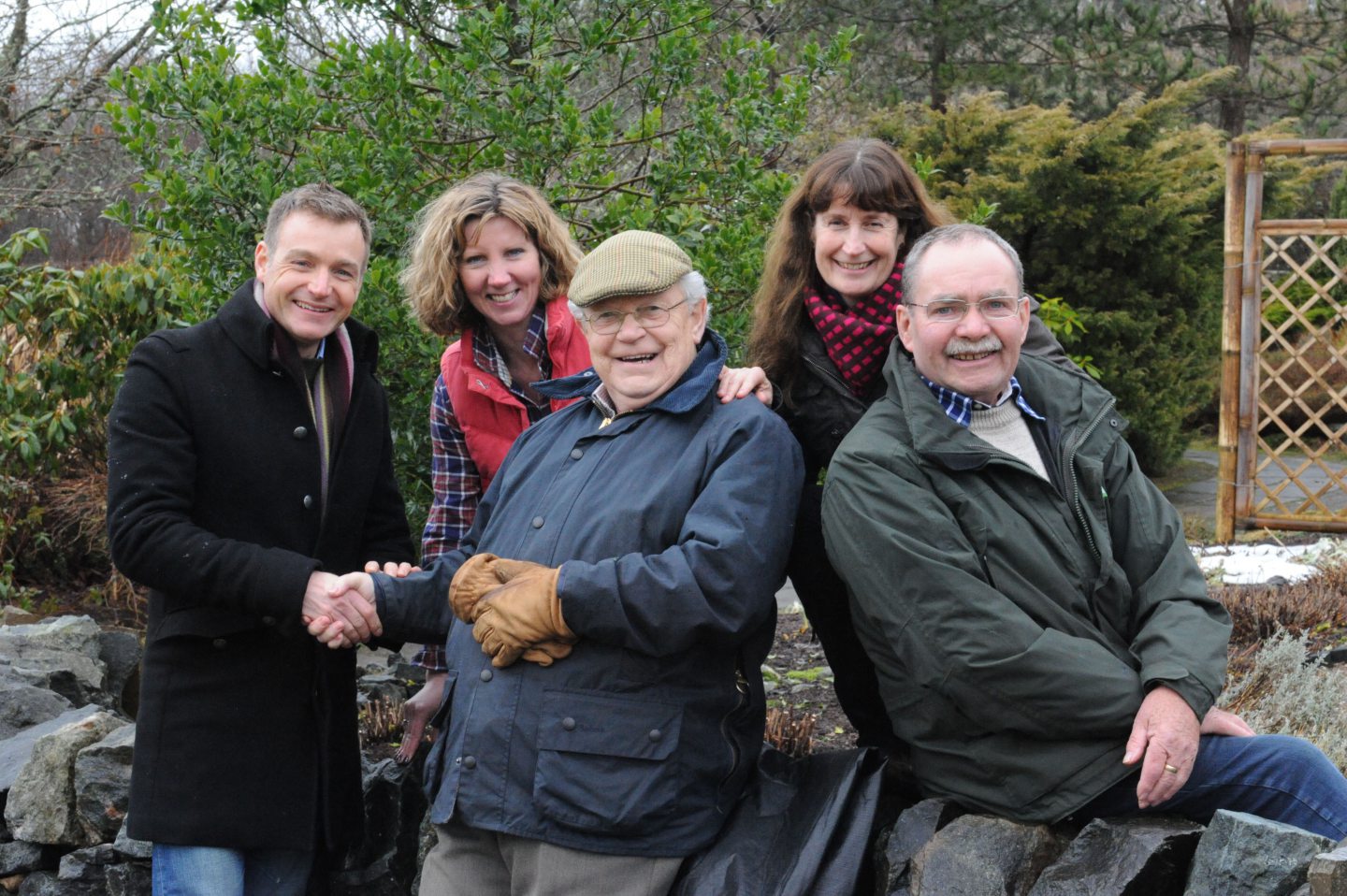
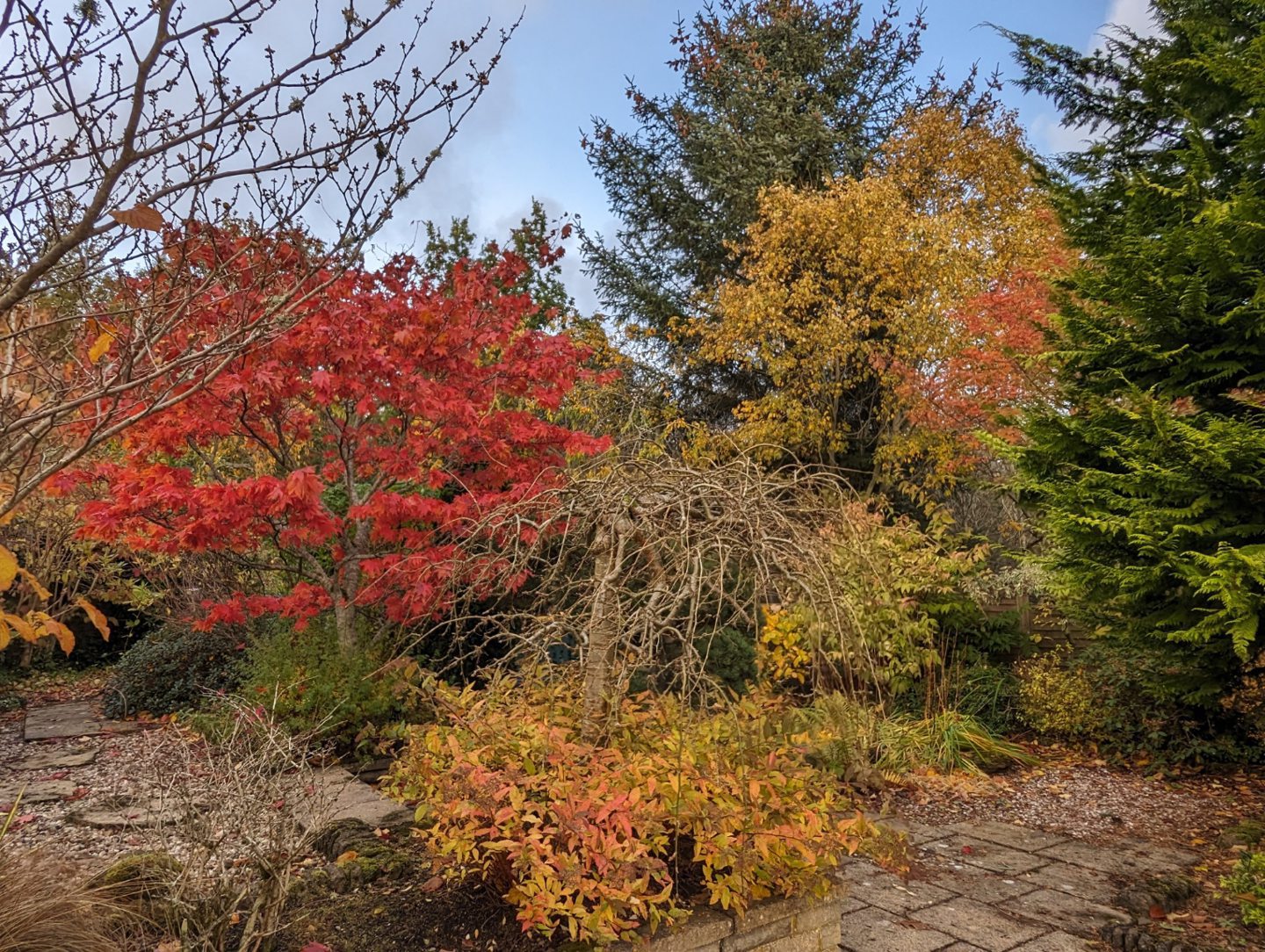
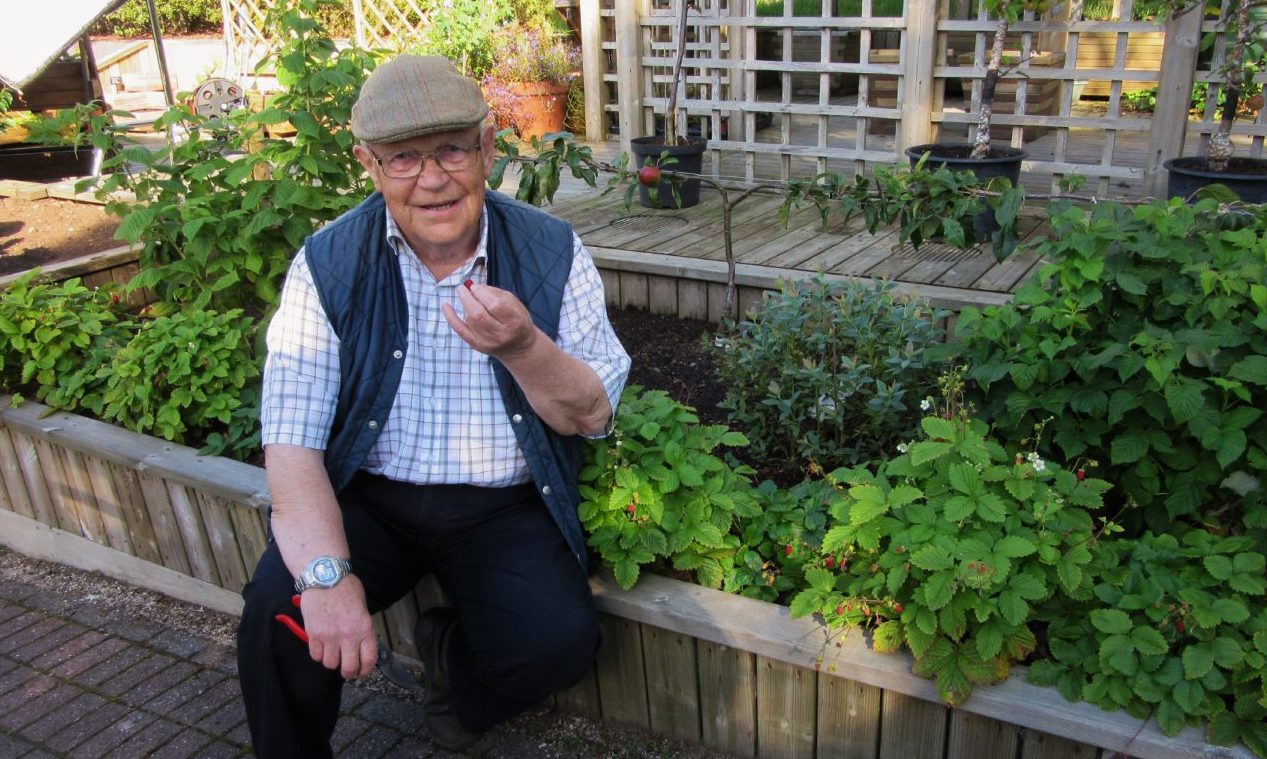
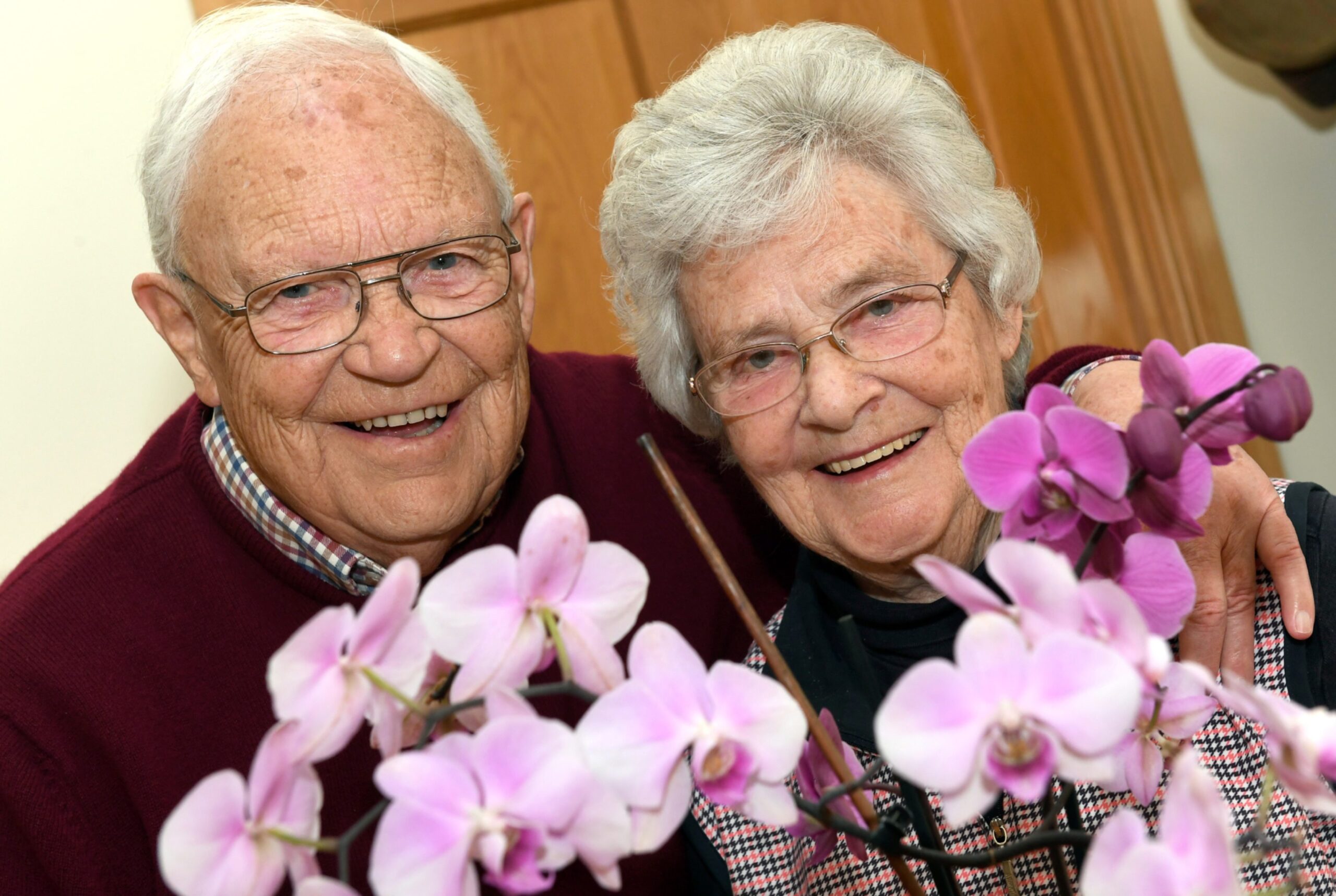
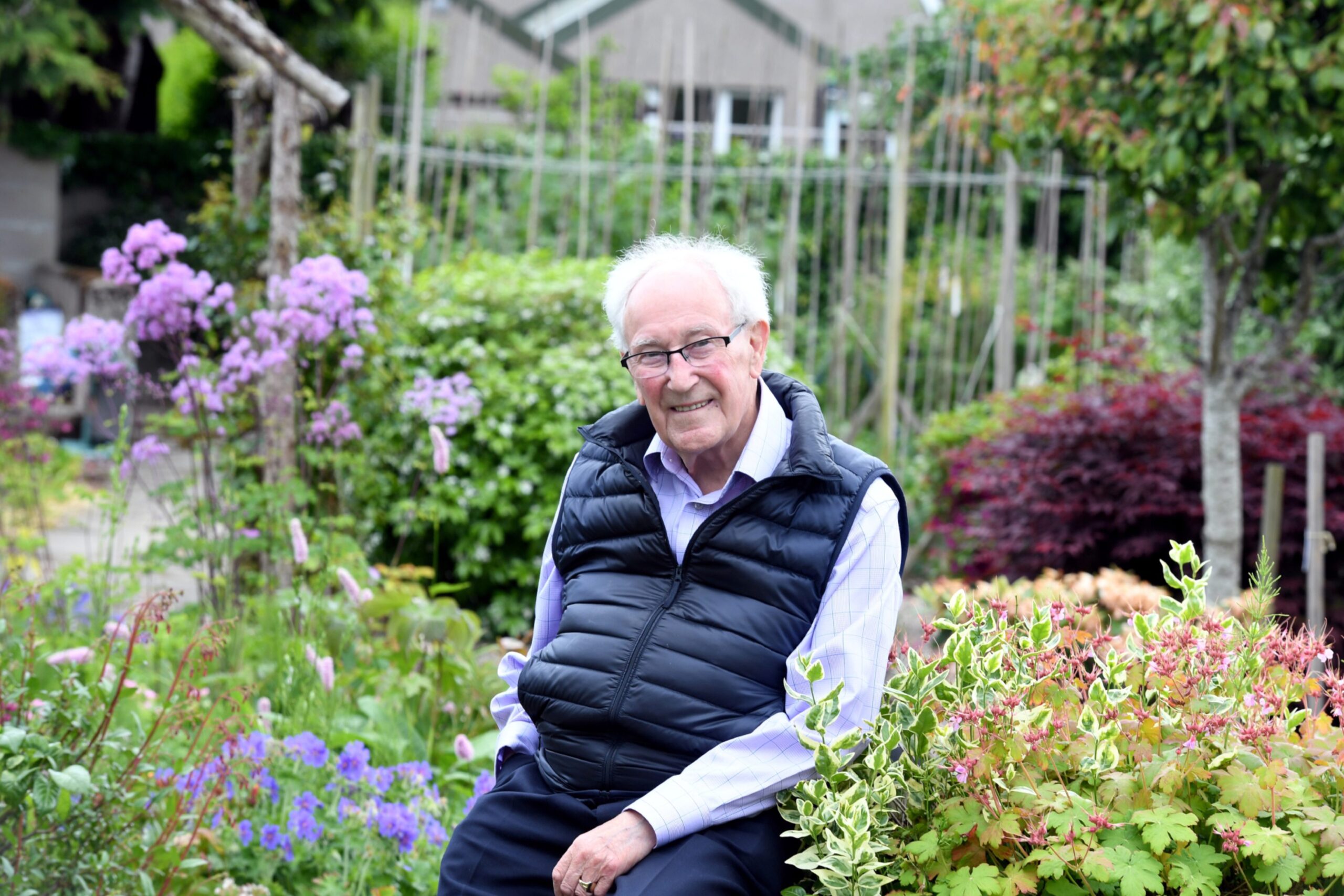
Conversation